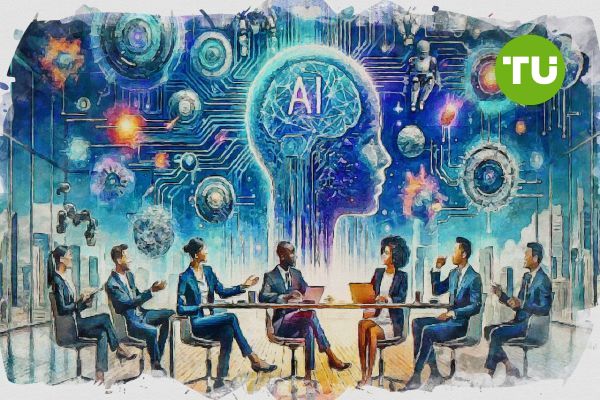AI to replace traditional apps, Paolo Ardoino says
 Ardoino bets on private local AI
Ardoino bets on private local AI
Paolo Ardoino, CEO of Tether, sparked a wave of discussion in the tech community with his bold prediction about the future of personal devices. In a post published on social media platform X (formerly Twitter) in June 2025, he shared his view that traditional app ecosystems and app stores will become obsolete. In their place, built-in artificial intelligence will take over, capable of creating customized interfaces and tools in real time to meet users’ individual needs.
Loading...
Personalization, communication, and autonomy
According to Ardoino, future devices will no longer come with pre-installed apps or even have access to app marketplaces. Instead, they will rely on a local, private datastore and an embedded AI assistant. This AI will dynamically program and generate user interfaces and features based on each individual’s specific requirements, eliminating the need to download third-party apps.
“Why install a task manager or photo editor,” Ardoino asked, “when your device can instantly create a tool tailored specifically for you?”
The concept goes beyond personal productivity. Ardoino suggests that communication platforms will also evolve—messaging apps and social networks will no longer require standardized protocols. Instead, AI agents will negotiate communication protocols in real time, ensuring efficient and scalable interaction between users. This will remove the burden of manual integration and compatibility from developers, handing it over to intelligent agents.
A key element of Ardoino’s vision is the emphasis on low latency and device autonomy. Most computation, data generation, and app rendering will happen locally, reducing dependence on cloud services and centralized infrastructure. When needed, devices will fetch additional data through peer-to-peer (P2P) networks—without compromising privacy or performance.
A 5–15 year outlook and implications for Web3
Ardoino estimates that this shift could take place over the next 5 to 15 years. While ambitious, his forecast aligns with current trends in edge computing, AI miniaturization, and the move toward decentralized digital architecture.
Against the backdrop of Tether’s growing influence in the Web3 and fintech sectors, Ardoino’s views reflect the increasing focus on reimagining user experience and data ownership. Though still theoretical, his concept underscores the transition toward personalized, AI-driven computing—prioritizing privacy, flexibility, and speed over traditional software models.
See also: Brian Armstrong promotes cryptocurrency as a tool to combat global economic instability













































































































































